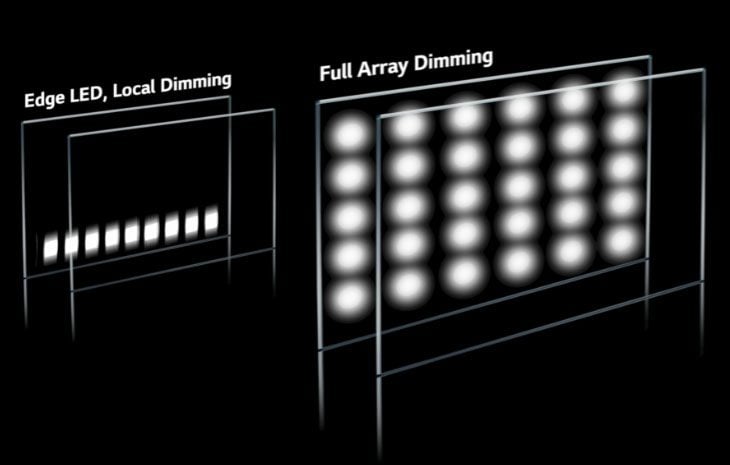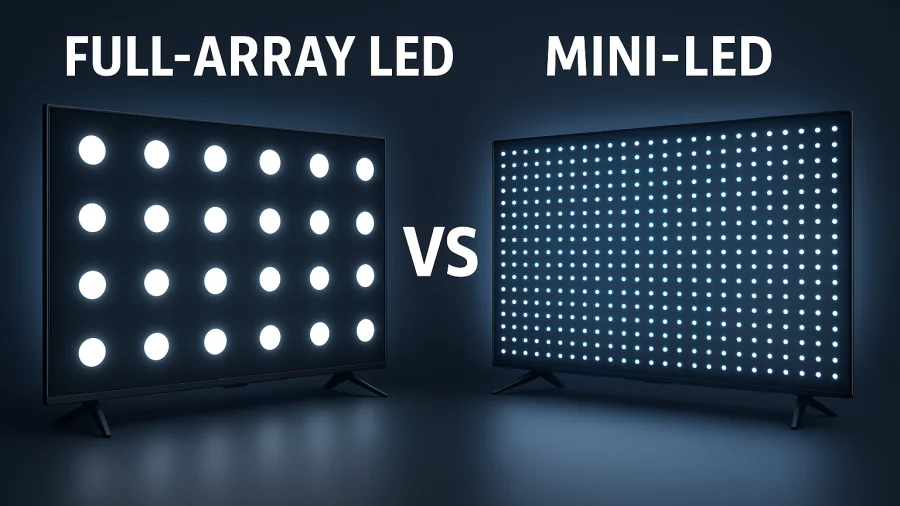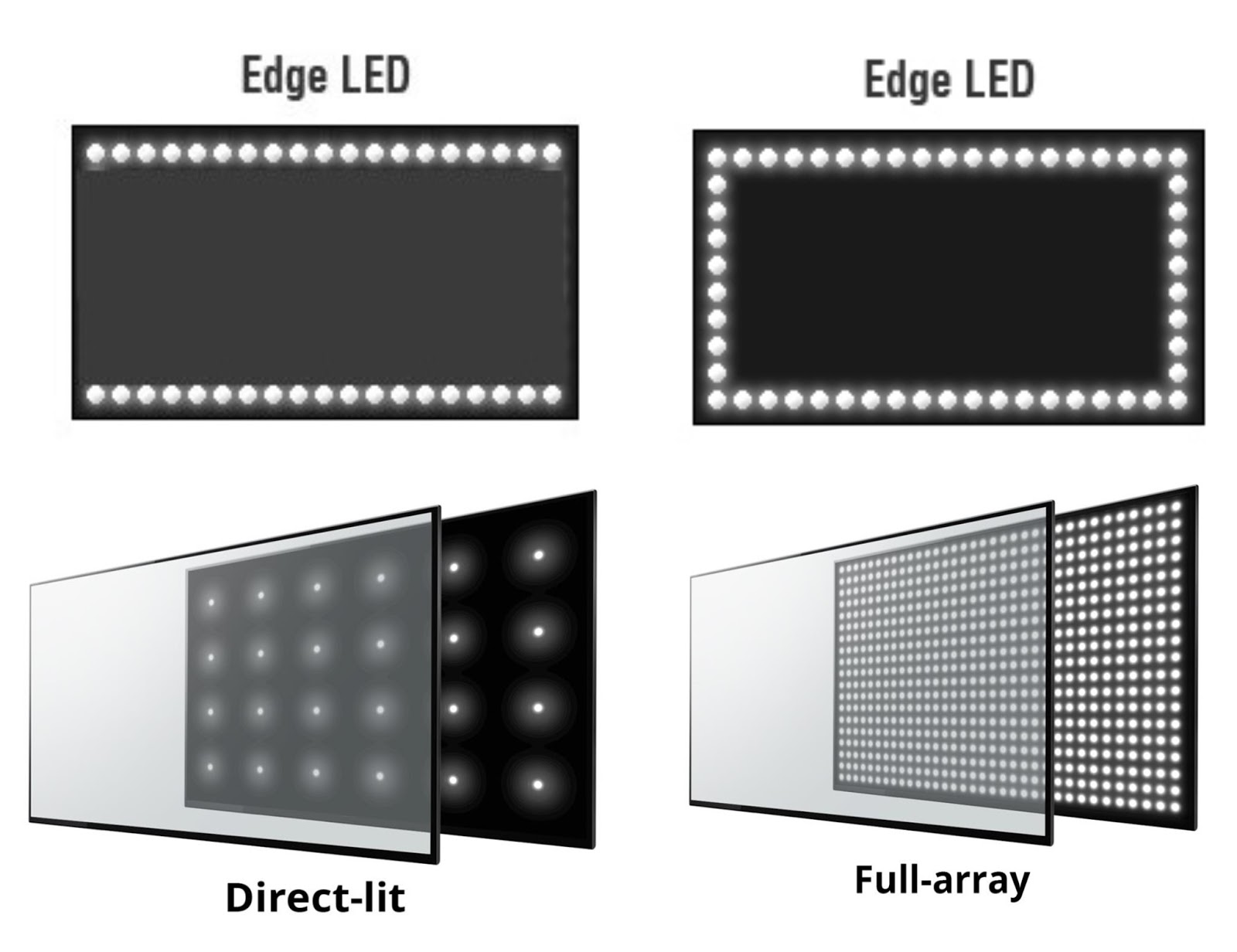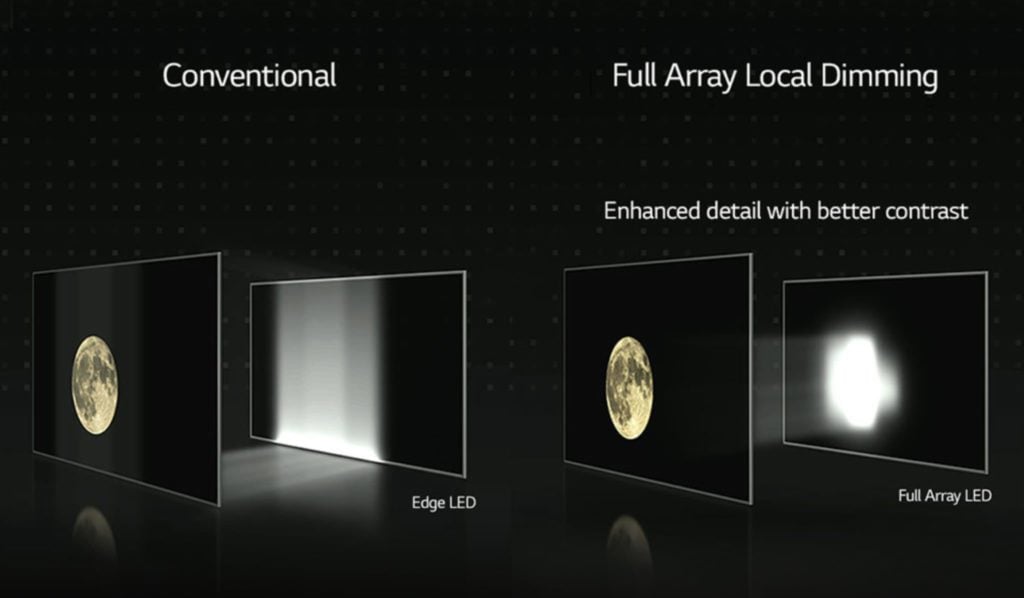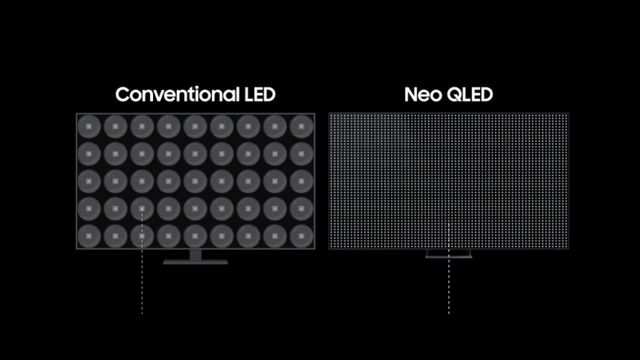Full Array Vs Direct Lit Which Is Better

The quest for the perfect picture quality on your television often leads to a head-scratching debate: full array local dimming (FALD) versus direct-lit LED backlighting. Both technologies aim to enhance contrast and brightness, but they achieve this in fundamentally different ways. Understanding these differences is crucial for making an informed decision when purchasing a new TV.
This article will explore the nuances of full array and direct-lit backlighting, highlighting their strengths, weaknesses, and ultimately, helping consumers understand which technology best suits their viewing needs and budget.
Understanding Backlighting Basics
At its core, an LED TV uses a backlight to illuminate the liquid crystal display (LCD) panel that creates the image we see. The arrangement and control of this backlight are key factors in picture quality.
Different backlighting technologies have different advantages and disadvantages, it greatly influences the television's contrast, brightness, and overall visual performance. This is where the distinction between full array and direct-lit TVs becomes important.
Direct-Lit Backlighting: Simplicity and Affordability
Direct-lit LED backlighting places LEDs directly behind the LCD panel, evenly spread across the entire screen. This is a relatively simple and cost-effective approach to backlighting.
However, because the LEDs illuminate the entire screen area, direct-lit TVs often struggle with contrast. It often lacks the ability to dim specific zones, resulting in less impressive black levels and a less dynamic image.
Full Array Local Dimming (FALD): Precision and Performance
Full Array Local Dimming (FALD) represents a significant upgrade over direct-lit technology. FALD also uses LEDs directly behind the LCD panel, but with an important difference: these LEDs are grouped into independently controlled zones.
These zones can be dimmed or brightened independently. Thus, FALD offers far greater control over contrast.
When a scene requires deep blacks in one area and bright highlights in another, the TV can dim the LEDs in the dark areas while keeping the LEDs bright in the highlighted areas. This creates a more dramatic and realistic image with better black levels and improved contrast.
Full Array vs. Direct Lit: A Detailed Comparison
The primary advantage of direct-lit TVs is their affordability. These models are generally less expensive than FALD TVs, making them attractive to budget-conscious consumers.
However, the cost savings come at the expense of picture quality. FALD TVs offer superior contrast, deeper black levels, and a more vibrant image. This difference is especially noticeable in dark scenes, where FALD TVs can reproduce subtle details that are often lost on direct-lit TVs.
The number of dimming zones in a FALD TV is also an important factor. More zones generally mean greater precision in controlling the backlight, leading to even better contrast and reduced blooming (a halo effect around bright objects on a dark background).
Impact and Considerations
The choice between full array and direct-lit backlighting depends largely on individual viewing habits and budget. For viewers who prioritize picture quality and frequently watch movies or play video games in dark environments, a FALD TV is the clear winner.
FALD's superior contrast and black levels create a more immersive and visually appealing experience. However, for viewers who primarily watch TV in well-lit rooms and are less concerned with achieving the absolute best picture quality, a direct-lit TV may suffice.
Consider the screen size. The benefits of FALD become more pronounced on larger screens, where the limitations of direct-lit backlighting are more apparent.
Ultimately, the best way to decide between full array and direct-lit is to compare them side-by-side in a store. Observe how each technology handles scenes with high contrast and deep blacks to determine which one best meets your needs and expectations.


